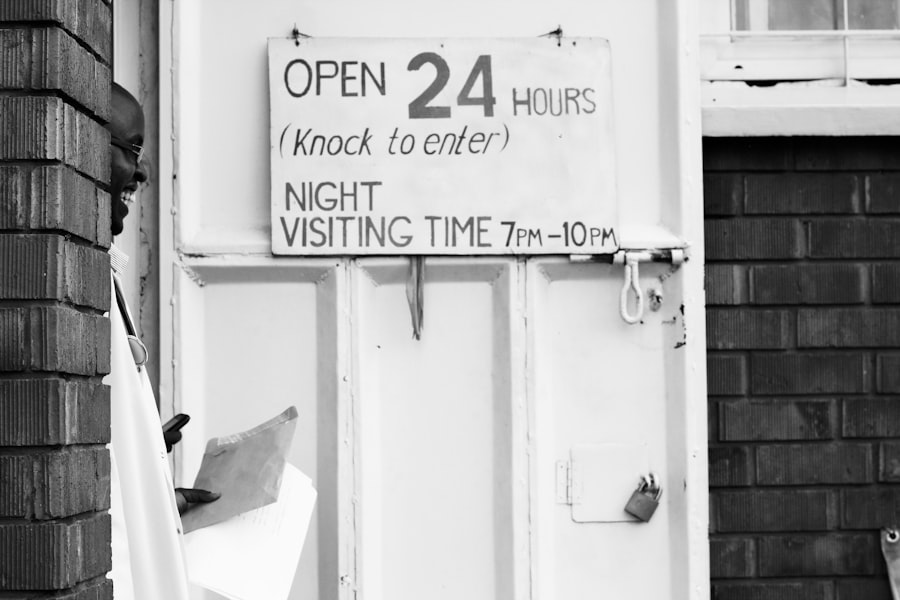Finding a dentist in Norway is a crucial aspect of maintaining one’s oral health, particularly for expatriates and newcomers to the country. Dental care is an integral part of overall health, and having a reliable dentist can make a significant difference in ensuring that individuals receive the necessary treatments and preventive care. In Norway, where healthcare standards are high, it is essential to find a dentist who not only meets professional qualifications but also aligns with personal preferences and needs.
This search can be particularly daunting for those unfamiliar with the local healthcare system or language. Moreover, regular dental check-ups are vital for preventing potential issues such as cavities, gum disease, and other oral health problems. In Norway, dental services are often covered by the national health insurance system for children and adolescents, while adults may need to pay out-of-pocket or have private insurance.
Understanding the nuances of dental care in Norway can help individuals make informed decisions about their oral health and ensure they receive the best possible care. Book your 1-hour strategy session with Norway Relocation Group.
Summary
- Finding a dentist in Norway is important for maintaining good oral health and preventing dental issues.
- Researching dentists in Norway involves looking into their qualifications, specializations, and services offered.
- Asking for recommendations from friends, family, or colleagues can help in finding a reputable dentist in Norway.
- Checking credentials and qualifications is crucial to ensure that the dentist is properly trained and licensed to practice.
- Considering the location and accessibility of the dentist’s clinic is important for convenience and ease of access.
Researching Dentists in Norway
The first step in finding a suitable dentist in Norway involves thorough research. The internet serves as a valuable resource, providing access to various dental clinics and practitioners across the country. Websites often feature detailed information about the services offered, the dentist’s qualifications, and patient reviews.
Additionally, many dental practices maintain active social media profiles, allowing potential patients to gain insights into their approach to care and patient engagement. In addition to online resources, local directories and healthcare platforms can provide comprehensive listings of dentists in specific areas. These platforms often allow users to filter results based on location, specialisation, and patient ratings.
By utilising these tools, individuals can compile a list of potential dentists that meet their criteria, making the subsequent steps in the selection process more manageable.
Asking for Recommendations

One of the most effective ways to find a trustworthy dentist in Norway is by seeking recommendations from friends, family, or colleagues. Personal experiences can provide invaluable insights into the quality of care offered by specific practitioners. Those who have lived in Norway for an extended period may have established relationships with local dentists and can share their experiences regarding treatment outcomes, office environments, and overall satisfaction.
In addition to personal networks, expatriate communities and online forums can be excellent sources of recommendations. Many expatriates share their experiences and advice on platforms such as Facebook groups or dedicated forums for newcomers. Engaging with these communities can help individuals identify dentists who are not only skilled but also sensitive to the unique needs of international patients.
Checking Credentials and Qualifications
Once a list of potential dentists has been compiled, it is essential to verify their credentials and qualifications. In Norway, dental practitioners must be licensed by the Norwegian Directorate of Health, ensuring that they have met rigorous educational and professional standards. Prospective patients should look for information regarding the dentist’s educational background, years of experience, and any additional certifications or specialisations.
Furthermore, it is beneficial to check if the dentist is a member of professional organisations such as the Norwegian Dental Association (Den Norske Tannlegeforening). Membership in such organisations often indicates a commitment to ongoing education and adherence to ethical standards within the profession. By thoroughly vetting a dentist’s credentials, individuals can feel more confident in their choice and ensure they are receiving care from a qualified professional.
Considering Location and Accessibility
When selecting a dentist in Norway, location and accessibility are critical factors to consider. Ideally, individuals should choose a dental practice that is conveniently located near their home or workplace. This consideration not only makes it easier to attend appointments but also encourages regular visits for preventive care.
In urban areas like Oslo or Bergen, where traffic can be congested, proximity can significantly impact one’s ability to keep up with dental check-ups. Accessibility also extends to the facilities themselves. It is important to consider whether the dental practice is equipped to accommodate individuals with mobility challenges or other special needs.
Many modern clinics in Norway strive to create an inclusive environment, ensuring that all patients can access care comfortably. By prioritising location and accessibility, individuals can enhance their overall experience when seeking dental services.
Evaluating the Dentist’s Specializations and Services

Different dentists may offer varying specialisations and services, making it essential for individuals to evaluate what each practitioner provides. Some dentists may focus primarily on general dentistry, while others may specialise in areas such as orthodontics, periodontics, or cosmetic dentistry. Understanding these specialisations can help patients select a dentist who aligns with their specific needs.
Additionally, it is worth considering the range of services offered by each practice. Some clinics may provide comprehensive care under one roof, including preventive treatments, restorative procedures, and cosmetic enhancements. Others may refer patients to specialists for certain treatments.
By assessing the available services, individuals can ensure they choose a dentist who can address their current needs while also being equipped to handle any future dental concerns.
Assessing the Dentist’s Communication and Bedside Manner
A dentist’s communication style and bedside manner play a significant role in the overall patient experience. It is essential to find a dentist who is approachable, listens attentively to concerns, and explains treatment options clearly. A positive rapport between patient and dentist can alleviate anxiety associated with dental visits and foster a sense of trust.
During initial consultations or phone calls, individuals should pay attention to how the dentist communicates. Are they patient and willing to answer questions? Do they take the time to explain procedures in layman’s terms?
A dentist who prioritises effective communication can make patients feel more comfortable and empowered regarding their oral health decisions.
Reviewing Patient Feedback and Testimonials
Patient feedback and testimonials provide valuable insights into the quality of care provided by a dentist. Online reviews on platforms such as Google or healthcare-specific websites can offer a glimpse into other patients’ experiences regarding treatment outcomes, office atmosphere, and staff professionalism. While individual experiences may vary, consistent patterns in feedback can help prospective patients gauge what they might expect from a particular practice.
In addition to online reviews, individuals may also consider asking for testimonials directly from the dental practice during consultations. Many clinics are happy to share success stories or case studies that highlight their expertise and patient satisfaction. By reviewing this feedback, individuals can make more informed decisions about which dentist may be the best fit for their needs.
Understanding the Cost and Payment Options
Dental care costs can vary significantly across different practices in Norway. It is essential for individuals to understand the financial implications of their choice before committing to a particular dentist. Many clinics provide transparent pricing information on their websites or during initial consultations, allowing patients to assess whether their services align with their budget.
Additionally, understanding payment options is crucial. Some dental practices may accept various forms of insurance or offer payment plans for more extensive treatments. In Norway, public health insurance covers certain dental services for children and adolescents; however, adults often need private insurance or pay out-of-pocket for most treatments.
By clarifying these financial aspects upfront, individuals can avoid unexpected costs later on.
Scheduling an Initial Consultation
Once potential dentists have been narrowed down based on research and evaluations, scheduling an initial consultation is an important next step. This meeting allows individuals to meet the dentist in person, assess the office environment, and discuss any specific concerns or questions they may have regarding their oral health. During this consultation, patients should feel free to ask about treatment philosophies, preventive care strategies, and any other relevant topics that will help them gauge whether this dentist is right for them.
It is also an opportunity to observe how staff members interact with patients and how efficiently the practice operates overall.
Making the Final Decision and Booking an Appointment
After gathering all necessary information through research, consultations, and evaluations, individuals are now equipped to make an informed decision regarding their dental care provider in Norway. It is essential to reflect on all aspects considered—credentials, communication style, services offered, location—and determine which factors hold the most weight in personal preferences. Once a final decision has been made, booking an appointment should be straightforward.
Most dental practices offer online booking systems or phone consultations for scheduling appointments at convenient times. By taking this final step towards securing dental care, individuals can embark on their journey towards better oral health with confidence. In conclusion, finding a dentist in Norway requires careful consideration of various factors including research methods, recommendations from trusted sources, credentials verification, location accessibility, specialisations offered, communication styles, patient feedback reviews, cost understanding, initial consultations scheduling, and ultimately making an informed decision.
Each step plays a vital role in ensuring that individuals receive quality dental care tailored to their unique needs. For those looking to enhance their experience while navigating these processes—especially expatriates—consider enrolling in Norwegian courses at NLS Norwegian Language School. These courses not only equip learners with essential language skills but also provide cultural insights that can ease communication with healthcare professionals in Norway.
By mastering the language through NLS’s tailored programmes, individuals will find it easier to engage with dentists and fully understand their treatment options—ultimately leading to better oral health outcomes in this beautiful Scandinavian country.
Speak Norwegian with confidence. Enroll in a class at the NLS Norwegian Language School now.

